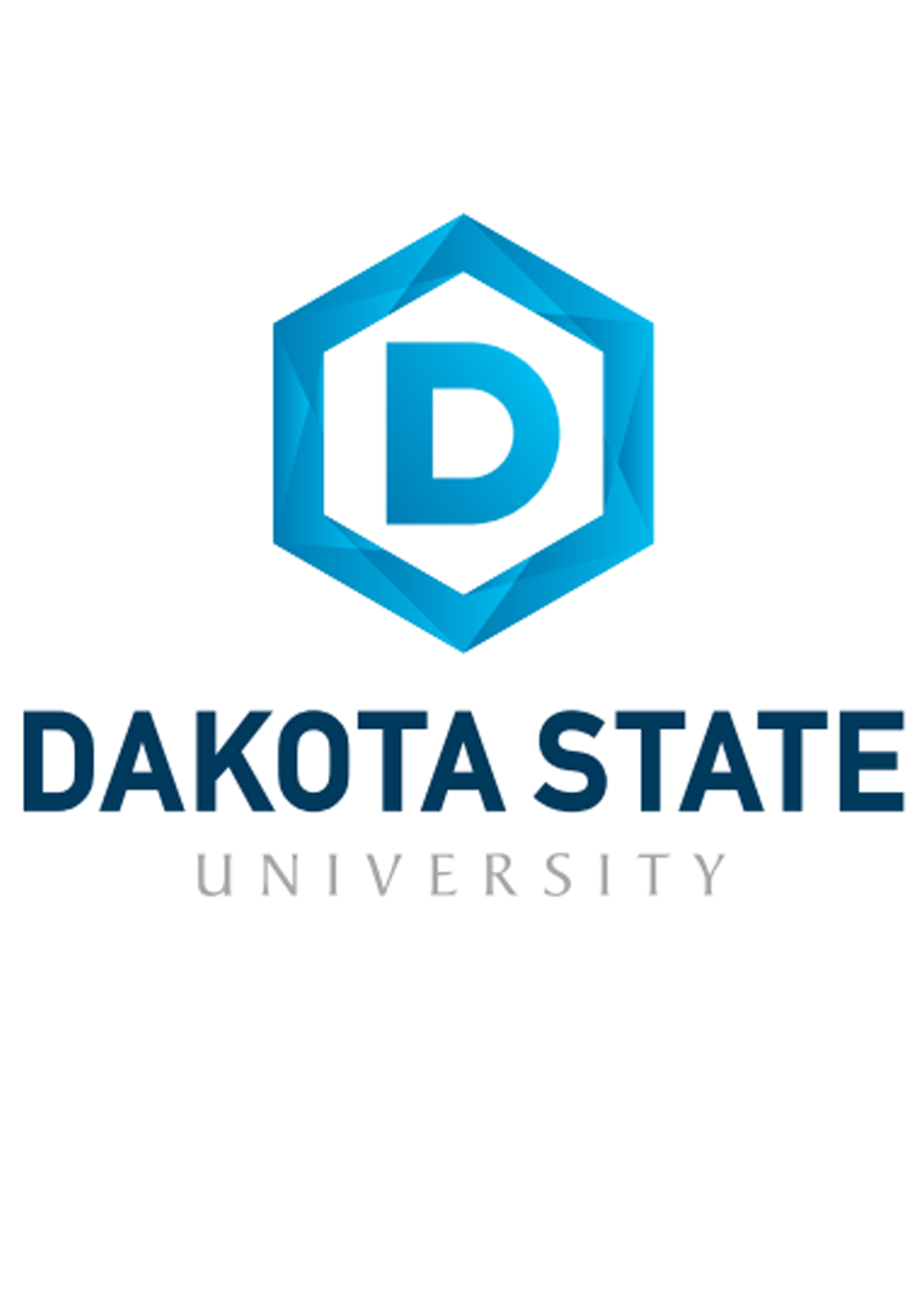Associate degrees are a common first step in students’ post-secondary education journeys. These two-year, 60-credit degree programs can prepare students to enter the workforce, pursue further undergraduate study, or determine their career options.
What makes for the easiest online associate degree largely depends on individual preferences, interests, and aptitudes. Intelligent.com’s list of the easiest online associate degrees prioritizes programs that are flexible, accessible, and affordable. This article also includes information on various types of online associate degrees and what students can expect in an associate degree program.
Types of Associate Degrees
Associate of Arts (AA)
An Associate of Arts (AA) is a 60-credit program that provides students with a solid foundation of coursework for pursuing a bachelor’s degree. Coursework in an AA program focuses on general education courses like English, math, humanities, and foreign languages. This degree can also help students gain valuable transferable skills that they can use to pursue entry-level jobs like receptionist or administrative assistant.
Associate of Science (AS)
An Associate of Science (AS) degree also prepares students for further study at the bachelor’s level, particularly if they are planning on pursuing a STEM major. As with an AA, students in this type of associate degree program will focus on general education coursework that can then be applied to a bachelor’s degree. Coursework often has more of a STEM emphasis, with a higher number of required credits in math and science. Some common career options for students who earn an AS degree include electrical engineering technologist and paralegal.
Associate of Applied Science (AAS)
Many technically-oriented careers require an Associate of Applied Science (AAS). Many vocational-oriented degree programs grant an AAS, as they focus more on developing specific hard skills for a particular field or job. They may or may not have a general education component, as they emphasize practical career training over courses needed to pursue a bachelor’s degree. Students who are interested in pursuing work as a radiology or MRI technician or dental hygienist may choose to pursue an AAS.
Associate of Business Administration (ABA)
An Associate of Business Administration (ABA) is a two-year degree program that covers essential principles and skills for business, including administration, finance, marketing, and communication. Students can use this degree either as a foundation for a bachelor’s degree in business or to qualify for entry-level business roles, such as bookkeeper.
Why Trust Us
The Intelligent.com Higher Education Team is dedicated to providing students with independent, equitable school and program rankings and well-researched resources. Our expert-driven articles cover topics related to online colleges and programs, paying for school, and career outlooks. We use data from the U.S. Department of Education’s College Scorecard, the National Center for Education Statistics, and other reputable educational and professional organizations. Our academic advisory team reviews content and verifies accuracy throughout the year for the most current information. Partnerships do not influence rankings or editorial decisions.
- Analyzed over 2,000 national, accredited, and nonprofit colleges and universities
- 800+ rankings pages are reviewed and updated yearly
- Content is informed by reputable sources, surveys, and interviews with academic advisors and other experts
- Over 100 data points are reviewed for accuracy and quality throughout the year, including sources
How we rank schools
Our list features the easiest online Associate degree programs at top colleges nationwide. Each school featured is a nonprofit, accredited institution — either public or private — with a high standard of academic quality for post-secondary institutions.
We evaluated each school’s program on tuition costs, admission, retention and graduation rates, faculty, reputation, and the student resources provided for online students. We collected data from trusted sources like the National Center for Education Statistics, individual school and program websites, school admissions counselors, and other data sources. Then, we calculated the Intelligent Score on a scale of 0 to 100 based on the following criterion:
Academic Quality:
- Admission rate versus enrollment rate
- Retention rate of students who return after year one
- Accreditation status (regional and programmatic)
- Nonprofit status, both private and public institutions
Graduation Rate
- Overall graduation rate
- Total number of currently enrolled students, including diversity metrics
- Student-to-faculty ratio
Cost and ROI
- In-state and out-of-state per-credit tuition rates and fees
- Required credits to graduate
- Earning potential after graduation
- Availability of federal student loans, scholarships, and other financial aid options
Student Resources
- Available student services for online-only and hybrid programs
- On-campus amenities like tutoring centers and the number of libraries
Read more about our ranking methodology.
The 50 Easiest Online Associate Degree Programs
FiltersInstitution Type
Status
- Intelligent Score
- Alphabetically By University Name
- Acceptance Rate
- Enrollment
- In-state Graduate Tuition
- Out-of-state Graduate Tuition
- In-state Undergraduate Tuition
- Out-of-state Undergraduate Tuition

Northeast Community College
Intelligent Score: 99.99In-state: $16,023
Out-of-state: $17,313
In-state: NA
Out-of-state: NA
SAT: N/A
ACT: 12-29
Resident: $108
Non-Resident: $151
Online
Higher Learning Commission
60-64

Stanly Community College
Intelligent Score: 98.24In-state: $18,588
Out-of-state: $25,039
In-state: NA
Out-of-state: NA
SAT: N/A
ACT: N/A
Resident: $76
Non-Resident: $268
Online
Southern Association of Colleges and Schools Commission on Colleges
64-73

Saint Leo University
Intelligent Score: 97.67In-state: $23,990
Out-of-state: $23,990
In-state: $14,568
Out-of-state: $14,568
SAT: N/A
ACT: N/A
$425
Online
Southern Association of Colleges and Schools Commission on Colleges
60

Trinity Valley Community College
Intelligent Score: 97.67In-state: $19,123
Out-of-state: $20,173
In-state: NA
Out-of-state: NA
SAT: 560 or higher
ACT: 26 or higher
Resident: $88 - $164
Non-Resident: $199
Online
Southern Association of Colleges and Schools Commission on Colleges
60

Haywood Community College
Intelligent Score: 97.09In-state: $18,377
Out-of-state: $24,521
In-state: NA
Out-of-state: NA
SAT: 480 or higher
ACT: 18 or higher
Resident: $76
Non-Resident: $268
Online
Southern Association of Colleges and Schools Commission on Colleges
60-73

Northwood Technical College
Intelligent Score: 96.90In-state: $17,908
Out-of-state: $19,962
In-state: NA
Out-of-state: NA
SAT: Not Required
ACT: Not Required
Resident: $164
Non-Resident: $239
Online
Higher Learning Commission
60-62

Colorado Christian University
Intelligent Score: 95.93In-state: $24,160
Out-of-state: $24,160
In-state: $13,474
Out-of-state: $13,474
SAT: N/A
ACT: N/A
$494
Online
Higher Learning Commission
60

Keiser University
Intelligent Score: 94.63In-state: $19,808
Out-of-state: $19,808
In-state: $27,162
Out-of-state: $27,162
SAT: N/A
ACT: N/A
$980 - $1,469
Online
Southern Association of Colleges and Schools Commission on Colleges
60-67

Milwaukee Area Technical College
Intelligent Score: 94.60In-state: $21,101
Out-of-state: $23,252
In-state: NA
Out-of-state: NA
SAT: N/A
ACT: N/A
Resident: $172
Non-Resident: $246
Online
Higher Learning Commission
60-64

Penn State World Campus
Intelligent Score: 93.85In-state: $15,025
Out-of-state: $24,413
In-state: $22,464
Out-of-state: $22,464
SAT: 1070-1300
ACT: 24-29
$626 - $671
Online
Middle States Commission on Higher Education
60-61

Dakota State University
Intelligent Score: 93.19In-state: $7,541
Out-of-state: $10,611
In-state: $5,939
Out-of-state: $5,939
SAT: 1010-1190
ACT: 19-26
Resident: $355
Non-Resident: $465
Online
Higher Learning Commission
60-61

Southern New Hampshire University
Intelligent Score: 91.64In-state: $9,600
Out-of-state: $9,600
In-state: $18,810
Out-of-state: $18,810
SAT: N/A
ACT: N/A
$330
Online
New England Commission of Higher Education
60

Mesa Community College
Intelligent Score: 90.82In-state: $25,647
Out-of-state: $31,431
In-state: NA
Out-of-state: NA
SAT: Not Required
ACT: Not Required
$253 - $379
Online
Higher Learning Commission
60-70

Regent University
Intelligent Score: 90.57In-state: $17,220
Out-of-state: $17,220
In-state: $15,552
Out-of-state: $15,552
SAT: 940-1220
ACT: 21-29
$395
Online
Southern Association of Colleges and Schools Commission on Colleges
63

Brescia University
Intelligent Score: 90.27In-state: $24,500
Out-of-state: $24,500
In-state: $600
Out-of-state: $600
SAT: 985-1085
ACT: 19-25
$450
Online
Southern Association of Colleges and Schools Commission on Colleges
60

Southeast Technical College
Intelligent Score: 90.05In-state: $23,623
Out-of-state: $23,623
In-state: NA
Out-of-state: NA
SAT: 830 or higher
ACT: 15 or higher
$124
Online
Higher Learning Commission
60-64

St. Petersburg College
Intelligent Score: 89.96In-state: $19,485
Out-of-state: $26,089
In-state: NA
Out-of-state: NA
SAT: Not Required
ACT: Not Required
Resident: $111 - $123
Non-Resident: $387 - $426
Online
Southern Association of Colleges and Schools Commission on Colleges
60-67

Hutchinson Community College
Intelligent Score: 89.73In-state: $15,938
Out-of-state: $16,868
In-state: NA
Out-of-state: NA
SAT: Not Required
ACT: Not Required
Resident: $124
Non-Resident: $155
Online
Higher Learning Commission
60-64
How to Choose the Online Associate Degree Program That’s Right For You
Choose your area of study
While exploring the easiest online associate degree program might be a priority, there are other important factors to consider to help you find the programs that are right for you. A key first step is clarifying your career interests and goals, if you haven’t already done so. Think about what skills and interests you have and how that can translate into a career to help you narrow down your options.
It’s also important to think about your long-term goals. Do you want an associate degree that can lead to a high-paying job, or are you planning to continue on to earn a bachelor’s degree? Even if you’re not sure yet, thinking about the future can help you make a more informed decision now. Students who intend to pursue further education should consider their school’s accreditation status when selecting an online associate degree.
Also, think about whether an associate degree is the ideal degree for the career you’re seeking. There may be trade or vocational programs that can offer the same type of career preparation in a different and perhaps shorter time frame.
Consider your needs
Online students should consider whether they want a synchronous or asynchronous program. While asynchronous programs offer students the most flexibility, they also require a significant amount of discipline, self-motivation, and strong organizational skills to be successful. Students who prefer interactive learning environments and need more accountability from professors and peers may find that an in-person associate degree program better suits their needs.
Research schools and programs
Once you’ve clarified your intended area of study and other criteria, you can begin seeking out programs that meet your parameters.
Most schools publish essential information on their website, including degrees offered, courses, faculty, admissions requirements, and tuition costs. You can also learn more about programs by participating in online open houses or information sessions and contacting the school’s admissions office.
A key piece of information to confirm is the school’s accreditation status. Students who are considering pursuing further study after earning their associate degree should be sure to select a college with regional accreditation to ensure credits are transferable to the majority of four-year colleges in the U.S. The Council for Higher Education Accreditation (CHEA) maintains a database of accredited institutions. Some associate degree programs may also have programmatic accreditation, depending on the area of study.
Once you start evaluating your options, ask the following questions:
- How do online students interact with each other, faculty, and staff?
- What academic, technical, and career support services are available for online students?
- What is the overall culture of this institution?
- What scholarship and financial aid opportunities are available?
Review admissions and eligibility requirements
Specific admissions requirements and processes will vary from school to school. Confirm this information with an admissions counselor from the schools you’re considering before beginning the application process.
In general, applicants to online associate degree programs will take the following steps:
- Complete and submit the application and any required fees
- Send official transcripts from your high school and any other colleges you’ve attended
- Request recommendation letters from teachers, employers, or community members
- Write an essay, if required
- Prepare for and take standardized tests like the SAT or ACT, if needed
Associate degree programs typically have fewer application requirements than bachelor’s, including not requiring SAT or ACT scores. However, taking these exams in preparation for enrolling in a two-year program can still be beneficial, especially if you’re a first-time undergraduate student or considering pursuing a bachelor’s degree in the future.
Determine how you’ll pay for your associate degree
While associate degree programs are typically more cost-effective than bachelor’s degree programs because they take less time to complete, they still require a financial investment. Confirm the program’s total cost (and any additional fees) with a financial aid counselor and discuss your options for financing your degree.
Students enrolled in associate degree programs can determine their eligibility for need-based aid like federal student loans, grants, and work-study by submitting the Free Application for Federal Student Aid (FAFSA). Many schools also offer merit-based aid like scholarships. Students can also explore options for scholarships through private foundations and nonprofits, professional development associations, and community or religious groups.
If you’re planning on working while earning your associate degree, find out if your employer offers any type of tuition assistance benefits, which can help offset educational costs. Military service members and veterans should inquire with their school about GI Bill benefits and military discounts.
What to Expect from an Online Associate Degree Program
Associate degrees are two-year, 60-credit degree programs that help students develop foundational-level skills in their chosen area of study. Students may earn an associate degree as their highest level of education, as there are many fields that only require an associate degree for employment. Another option is to earn an associate degree in preparation for pursuing a bachelor’s degree. Meanwhile, other students use associate degrees to complete general education requirements.
In addition to coursework, many associate degree programs require an internship to give students hands-on experience in their chosen field before completing their degree. Online students should review internship requirements for their chosen program to ensure they can accommodate them in their schedules, particularly if on-site attendance is required.
Online associate degree programs are delivered synchronously or asynchronously, or sometimes in a hybrid of the two. Synchronous programs feature virtual classes at predesignated times, while asynchronous programs allow students to access lessons and assignments at any time. Common instruction methods for online degree programs include readings, audio and video recordings, and lectures.
How to prepare for an associate degree program
Being successful in an associate degree program requires a variety of skills that students can begin developing even before they enroll. Online programs require discipline, self-motivation, and organizational and time-management skills. Because students don’t have the accountability of regular class meetings, they must hold themselves accountable to complete lessons and assignments and ask for assistance if necessary.
Determine what you need in terms of technology, including a reliable computer and internet access. Students in online programs should also have a basic technical proficiency and familiarity with video conferencing software. Creating a specific space in your home to serve as an office or study area can also be beneficial.
What Can You Do with an Online Associate Degree?
Students who earn an online associate degree typically take one of two paths – entering the workforce or pursuing a bachelor’s degree.
Careers that require associate degrees are generally highly skilled in technical or support roles. While these jobs may be fast-growing and high-paying, students should be aware that a vocational associate degree typically doesn’t help them develop transferable skills that they may need should they choose to seek a job in a different field. In this case, students would have to pursue additional education in order to qualify for additional employment opportunities.
The other option is to earn an associate degree to prepare for a bachelor’s degree. This degree can be a way for students to explore a career path before committing to a full four-year degree program, and it allows students to earn general education credits that they can apply to a bachelor’s degree at a lower tuition rate or on a more flexible schedule.
Career outlook
- Dental hygienists — Examine patients for signs of oral diseases, provide preventive care, and educate patients about oral health.
- Median annual salary: $87,530
- Projected employment growth (through 2032): 7%
- New jobs projected: 16,400 per year
- Physical therapy assistants — Work under the direction and supervision of physical therapists to help patients recovering from injuries and illnesses regain movement and manage pain.
- Median annual salary: $33,520
- Projected employment growth (through 2032): 19%
- New jobs projected: 24,300 per year
- Paralegals and legal assistants — Support lawyers by performing various tasks, such as maintaining and organizing files, conducting legal research, and drafting documents.
- Median annual salary: $60,970
- Project employment growth (through 2032): 4%
- New jobs projected: 38,000 per year

